THE EXPERT RESTAURANTERS OF BOMBAY
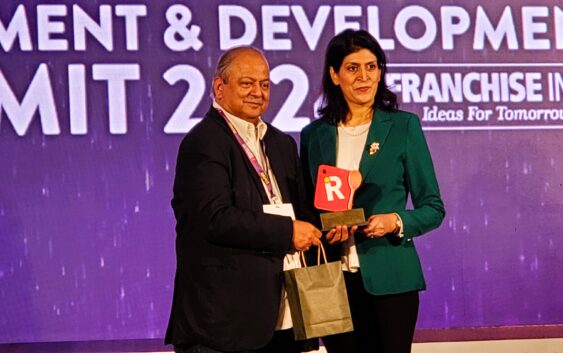
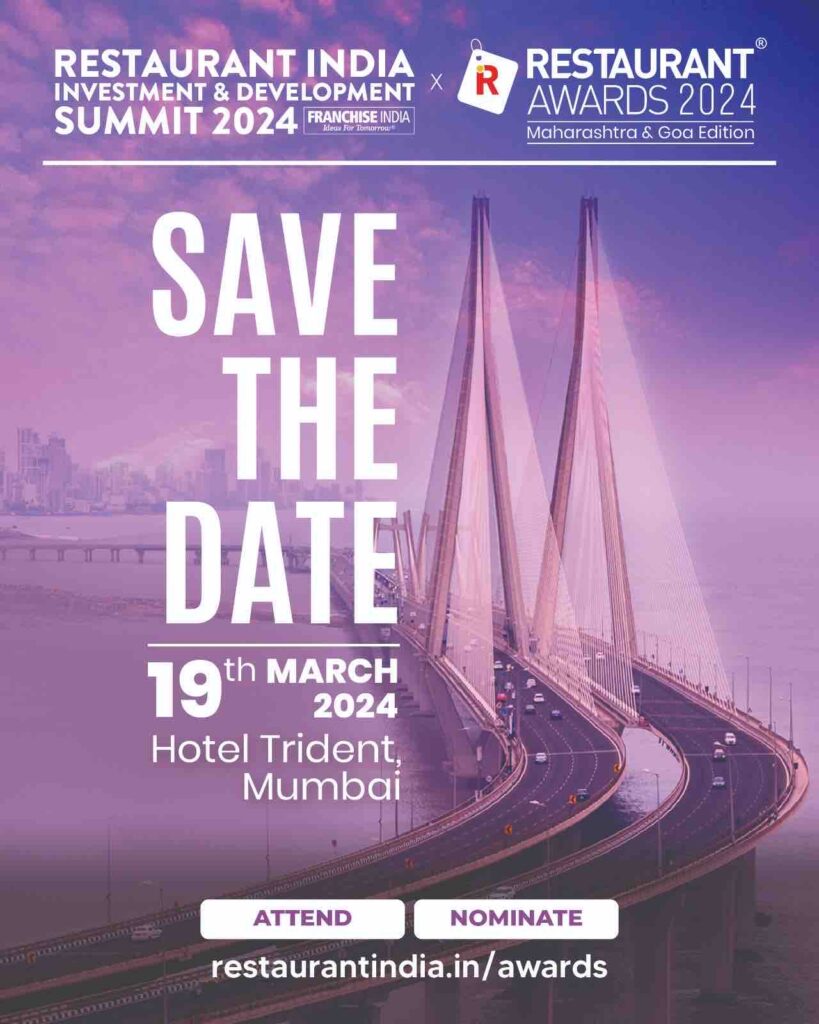
The Restaurant India Investment & Development Summit 2024, held at Trident BKC, Mumbai on 19 March 2024, brought together industry leaders and visionaries to explore the ever-evolving landscape of the Indian restaurant scene. This annual event serves as a crucial platform for fostering dialogue, sharing insights, and charting the course for the future of Indian food.
The summit’s focus on investment and development reflects the dynamic nature of the industry. With new trends and technologies emerging constantly, there’s a growing need for restaurateurs to stay ahead of the curve. By featuring prominent restaurateurs as speakers, the summit provides attendees with invaluable access to the minds shaping the industry. These culinary experts not only share their experiences and expertise, but also offer practical guidance on navigating the challenges and opportunities that lie ahead.
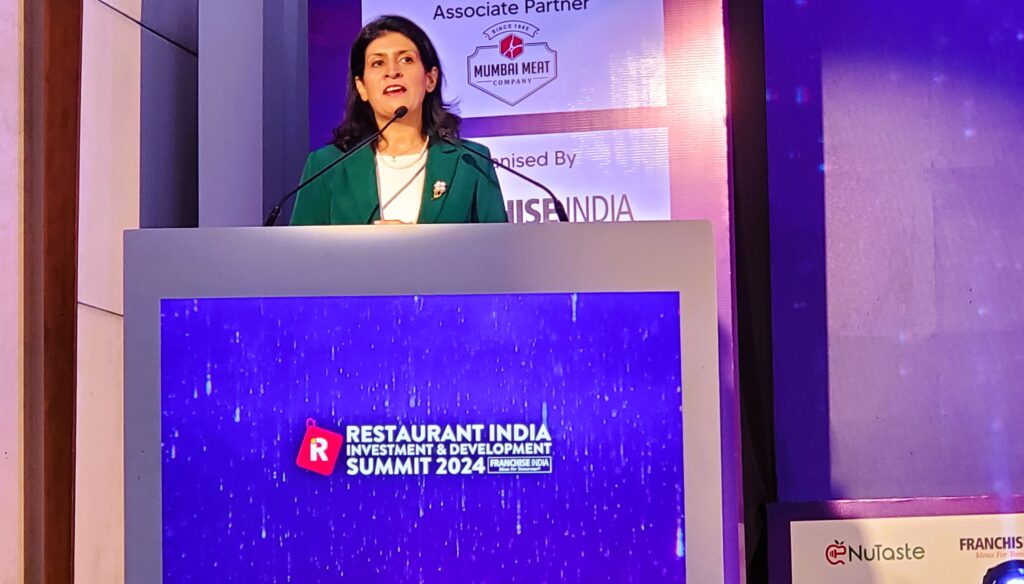
Ritu Marya, the Editor-in-Chief of Entrepreneur India-Asia-Pacific and Franchise India Media, a division of Franchise India Holdings Limited gave her opening remarks.
It’s truly inspiring to see so many Esteemed Restaurateurs, and Fellow Food Enthusiast, all united by a love for the culinary arts and the entrepreneurial spirit that drives our vibrant restaurant industry. I witnessed firsthand the immense dedication and innovation that restaurateurs bring to the table – quite literally! You are the heart and soul of this industry, constantly pushing boundaries, crafting unforgettable experiences, and most importantly, feeding the world with deliciousness.
This summit exists for you, the entrepreneurs who are shaping the future of Indian cuisine. The conference will delve into the exciting world of investment, development, and the ever-changing landscape of restaurants and hear from industry titans, share best practices, and explore the tools and technologies revolutionizing our field.
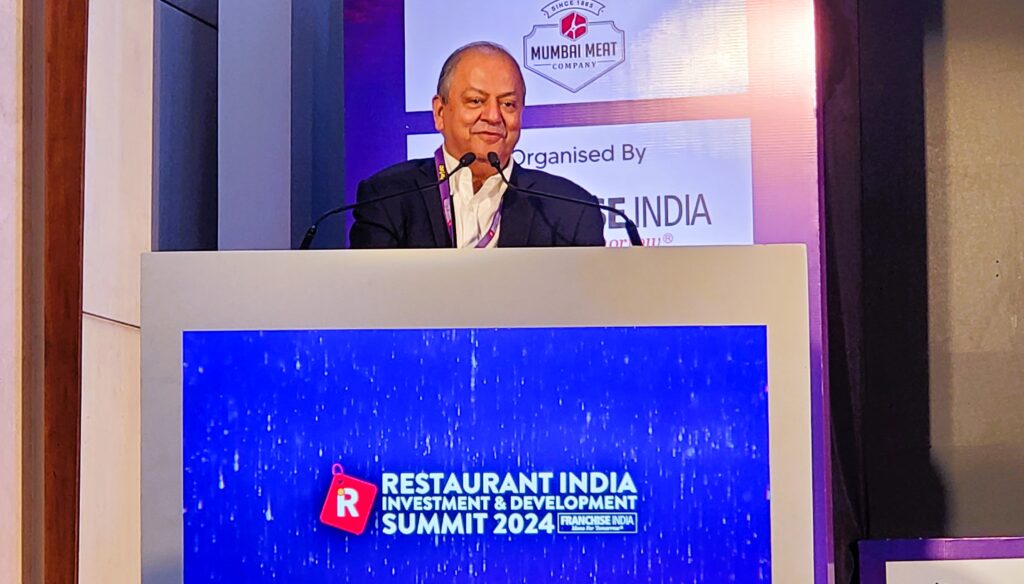
Special session by Hemant Oberoi, Celebrated Chef & Restaurateur, Chef Hemant Oberoi, the chef extraordinaire, has spent over four decades as the corporate chef for Taj Group of Hotels’ premium division. After hanging up his apron at the Taj, he went on to manage two highly successful restaurants in Singapore – Yantra and San Diego – Masala Street. What every foodie was looking forward to was his first eponymous restaurant in BKC, Mumbai. Chef Oberoi’s main restaurant had a decidedly contemporary menu inspired by European, Peruvian, and Asian cuisines. Oberoi has received several awards, including H&FS Hosts’ Executive Chef of the Year Award.
Chef Hemant always said – “Life is food after all, with its sights, sounds, colours and tastes.”
During his time at Taj, he served numerous legendary specialty meals to worldwide and national celebrities, business executives, and politicians. Chef Oberoi has revolutionised the notion of fine dining in India throughout the years, cementing his place as one of the greatest in the culinary world.
Chef Hemant Oberoi exposed Indian diners to cuisines from around the world. His knives helped shape the growth of India’s culinary sector. Mediterranean food at the award-winning Souk, Sichuan at the famed Golden Dragon, and Japanese at the world-renowned Wasabi Chef all pushed the frontiers of gourmet. At the famed Zodiac Grill, he elevated the fine dining culture to unprecedented heights. Hemant Oberoi envisioned Martabaan as a ‘modern classic’ Indian dining destination, adding a distinctive touch to the exquisite culinary canvas at Emirates Palace, Abu Dhabi, and Mandarin Oriental.
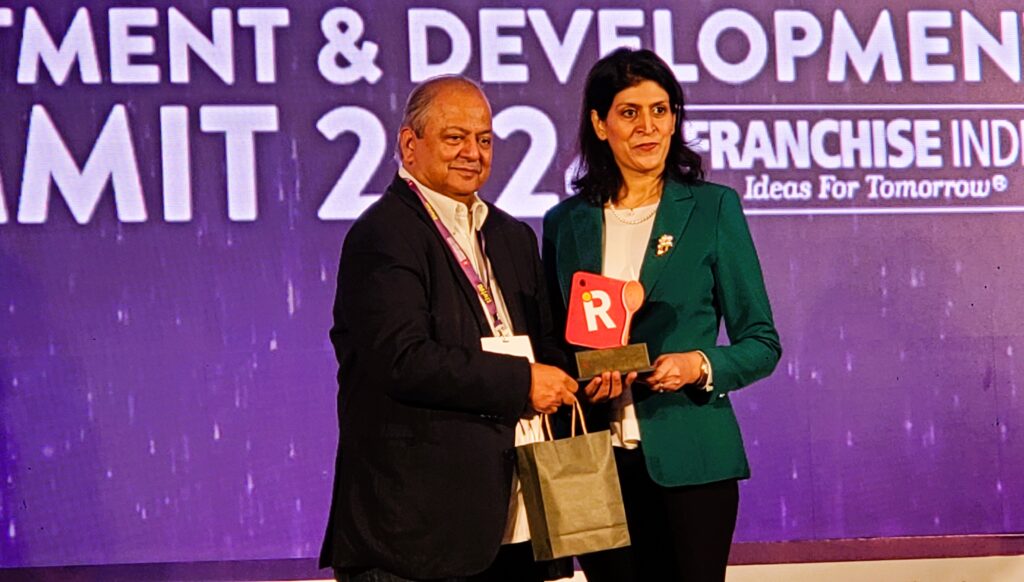
Hemant observed the 2008 terror strikes in the Taj Hotel and reacted with an almost incomprehensible amount of courage and selflessness, with intuition and gut impulses leading the way. When COVID-19 struck the market, it had a significant impact on the eating out lifestyle. Social separation was not apparent for a long period, and there were no large social tables. The industry actually came to a halt and continued for a few months.
While Chef Hemant highlights the innovative spirit in the culinary world, his observation about Chicken Tikka Masala originating from Butter Chicken sparks an interesting conversation/debate. There’s a growing trend of variations on established dishes, often catering to different preferences. But for some, the original recipe holds a special place. Here, Chef Hemant emphasizes the importance of preserving the core identity of classics like Butter Chicken, ensuring its unique flavors and heritage aren’t lost amidst the wave of adaptations. This doesn’t negate creativity. After all, culinary innovation thrives on a foundation of strong traditions. Perhaps the key lies in acknowledging the origins while using them as a springboard for exciting new creations.
To Oberoi, a “guest is like God,” he tells PEOPLE. “That’s what we learned all our lives, that the guest is God and God has come to your house and the guest has come to your house,”
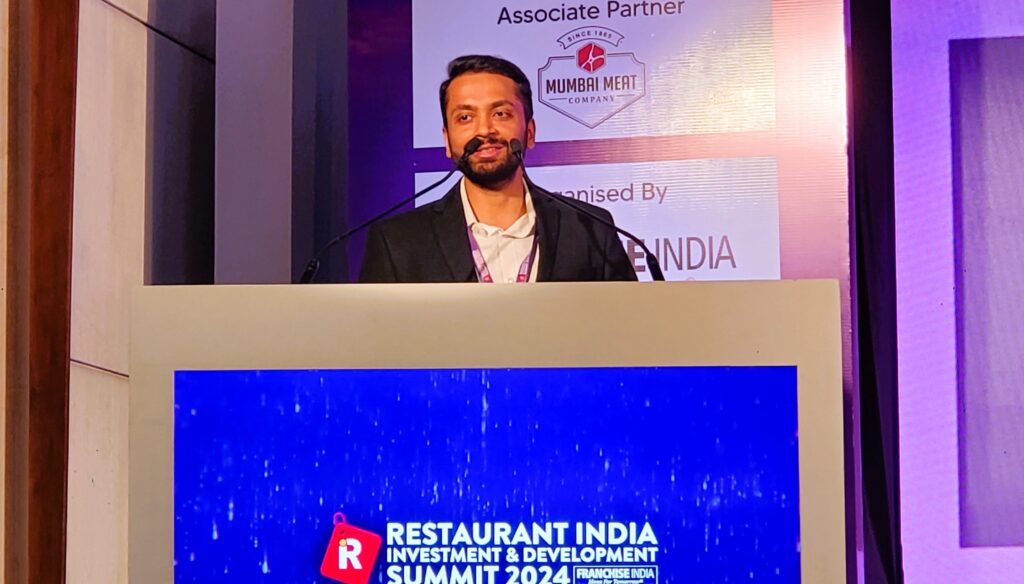
Raghav Joshi, Co-founder & Head- Hosted and Acquired Brands, spoke on “Brands share everything from being a local leader to a World Explorer.” Raghav Joshi co-founded Rebel Foods, the world’s largest internet restaurant firm by scale, which was funded by Sequoia Capital, Goldman Sachs, and Coatue.
Rebel Foods looks for companies in large categories (like North Indian cuisine), with good same store sales growth (SSSG), strong unit economics (profitable at a per order level), a scalable model (able to be easily replicated in new locations), and a good payback period (the amount of time it takes to recoup the investment). They also look for a strong leadership team with a clear vision for the future of the company.
On scaling and expansion, decide on a model for expansion (offline stores, cloud kitchens, or a mix of both), decide on an investment mode (internal, debt, equity, or franchising), and create a plan for the future of your business that considers both the big picture and the details.

Even the franchisee route, is Franchise Owned Company Operated (FOCO) or Franchise Owned Franchise Operated (FOFO) preferred as business models. Unlike FOFO, where franchisees handle both ownership and operation, FOCO model sees the franchisor directly managing day-to-day activities. This model provides franchisors with greater control over brand standards and consistency across outlets, making it suitable for rapid expansion and maintaining quality standards.
On mentoring/investing in startups, Rebel Launcher is a special program by the food-tech unicorn. It is aimed to bolster restaurant brands to scale up quickly and at low costs by getting on board the Rebel Operating System. Rebel Operating System provides culinary innovation, robust supply chain and full-stack technology, through which partner brands are scaled up in a very short period. Brands as a part of the Launcher can integrate instantly with all distribution channels and achieve cost efficiency with shared resources.
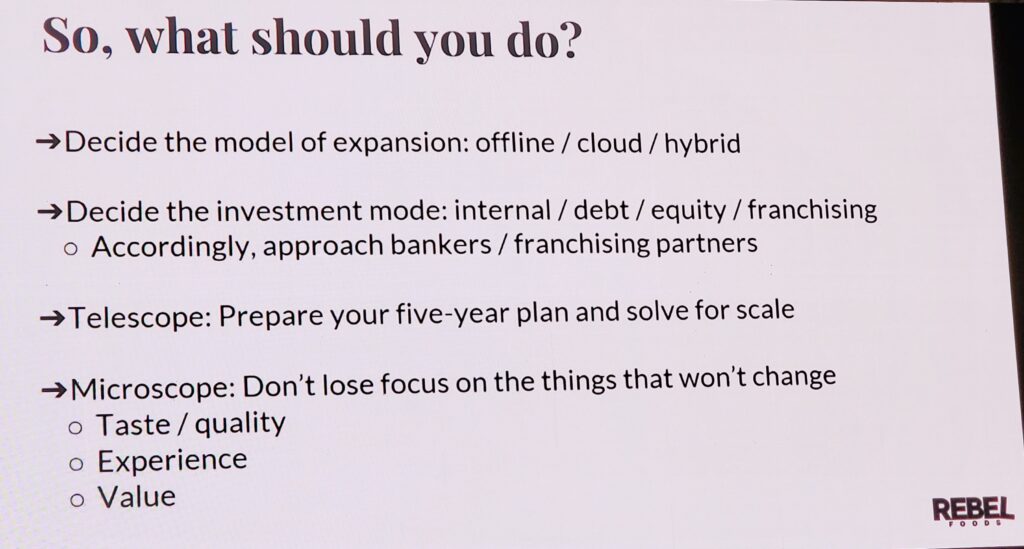
On leveraging technology in the food business, Joshi has been at the forefront of the cloud kitchen revolution, using technology to optimize operations, reduce costs, and create innovative food brands. Joshi emphasizes the importance of data in the food industry, using insights from customer preferences, ordering patterns, and delivery times to enhance customer experience and streamline operations. The necessity for automation to ensure scalability and consistency became obvious as orders expanded, and the chain made early investments in cutting-edge technologies.

On the strategic use of franchisees to fuel growth, Joshi believes that franchisees bring valuable local insights, enabling Rebel Foods to adapt its brands and offerings to different regions and markets and franchisees offer a means to rapidly scale Rebel Foods’ brands, while maintaining high standards of quality and consistency across locations.
The trend of ordering in is here to stay, especially in Tier 2 cities which have traditionally been strong on dine-in takeaway. Rebel Foods has increased its presence from 30 cities to 75 + cities in the last couple of years and is seeing good growth in these cities.
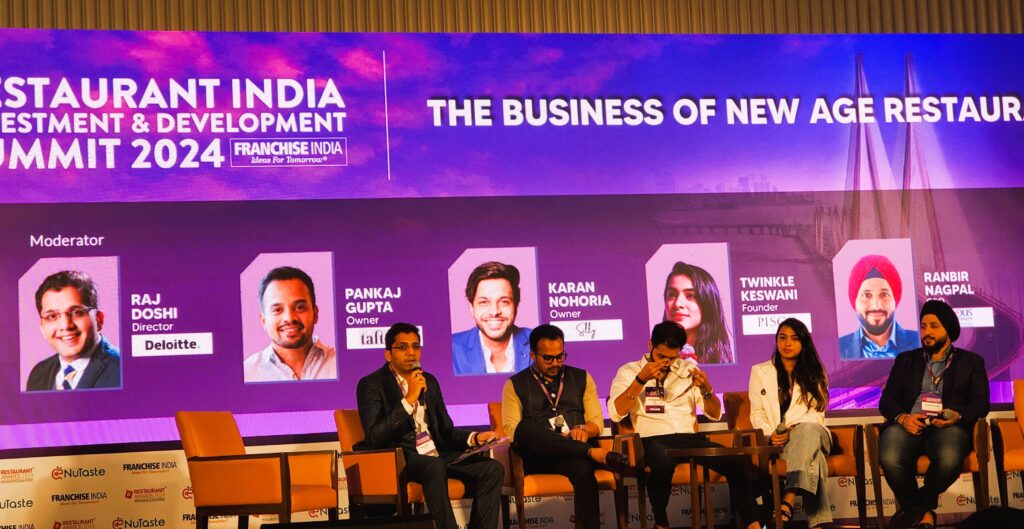
In the Business of New Age restaurants panel discussion, moderated by Raj Doshi, Director, Deloitte Consulting and the panelists Pankaj Gupta, Owner, Cirqa, Taftoon Bar & Kitchen, Karan Nohoria, Owner, Silly Twinkle Keswani, Founder, Pisco Hospitality, Ranbir Nagpal, CEO, Indus hospitality, Founder of YAZU Pan Asian Supper Club, and Co-Founder at Juliette Ristorante & Bar, the session focused on location of restaurant/cafe, the economics of contemporary restaurants and importance of nightlife and lifestyle Quotients in Food service. Ranbir Nagpal’s family has been in the culinary industry for the past 40 years. His interest in the culinary sector drove him to create a restaurant with an unusual idea in order to differentiate himself from the competitors. Nagpal founded Yazu, a Pan-Asian fine-dining restaurant and supper club in Andheri under Indus Hospitality and Ranbir as Founder CEO.
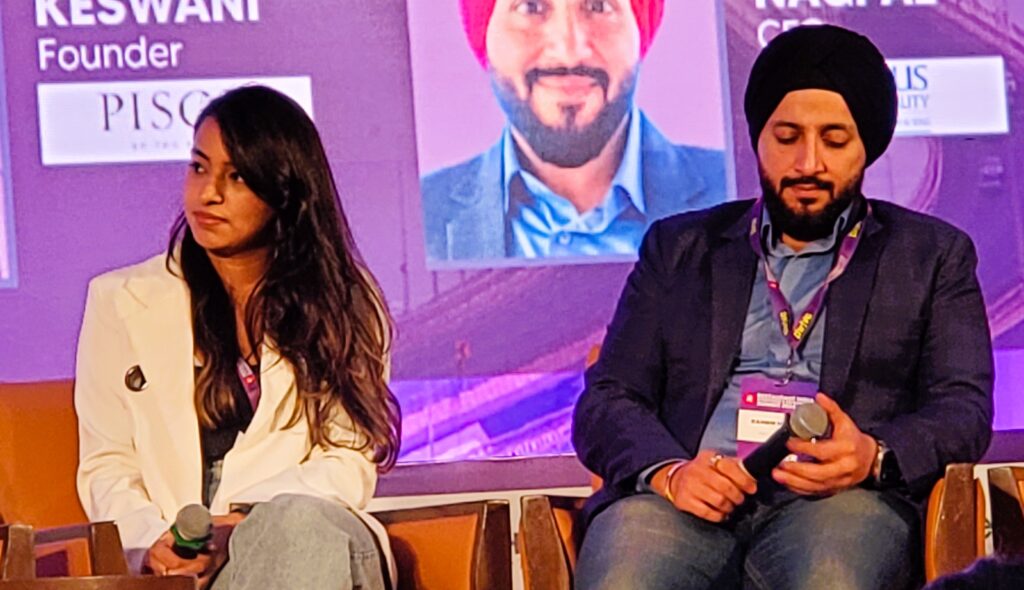
According to Ranbir, finding a decent location is the most significant and effective way to ensure your business’s success. A decent menu and experienced personnel are essential for a restaurant’s success, but a terrific location may give your business a whole new boost.
As restaurateurs, we may do the proper promotion, find the appropriate location, make offers, and so on, but the consumer will return back only if the food quality is great and the service is world-class. These two form the foundation of any eatery.
The overall experience at a given site must be exceptional. It should have a nice ambiance, low leasing charges, and restaurant owners should keep an eye on the availability of parking places. It makes your location more accessible and allows the general public to easily find your eatery.
Passion is the secret sauce to any successful food enterprise. Whether you’re launching a restaurant or a food truck, or you’ve been in the culinary industry for a while. The team’s continual hard work helps us manage our business successfully.’
We carefully analyse the target market, kind of food, competition, accessibility, footfalls, and other variables while selecting a place to ensure its success. Competition is healthy, and our goal is always to outperform with our product.

The demand for vegetarian and Jain food in Mumbai varies significantly based on micro location and taste preferences. In areas with a higher population of vegetarian and Jain communities, the demand for these food options is significantly higher than in other parts of the city. In response to the varied demand for vegetarian and Jain food across Mumbai, Yazu & Juliette adapts its menu offerings to cater to the preferences of local communities. This includes creating unique menu items that are suitable for vegetarian and Jain diets, as well as adjusting the proportion of vegetarian and Jain options on the menu to reflect local preferences. Menu creation is more about ROI.
Ranbir relies on data, which has become an essential tool for food businesses, and Indus Hospitality has embraced it to improve client interactions and create unforgettable dining encounters. By analysing data such as client preferences, ordering habits, feedback, and cultural tastes, Indus Hospitality may adjust menu items, marketing campaigns, and overall dining experiences to fit their customers’ different requirements and expectations. This data-driven strategy not only assures consumer pleasure, but also allows Rebel Foods to remain ahead of the competition and predict future trends in the quickly changing food sector.

As the Founder of Pisco Hospitality, Twinkle Keswani has emphasized the crucial role that aesthetics and spaciousness play in creating an inviting and memorable dining experience. She believes that every aspect of a restaurant’s design, from the ambiance and decor to the layout and furnishings, contributes to the overall atmosphere and customer satisfaction. By prioritizing aesthetics and spaciousness, Keswani aims to create dining spaces that not only provide a comfortable environment for guests but also serve as a reflection of the unique culture and story behind each Pisco Hospitality establishment.
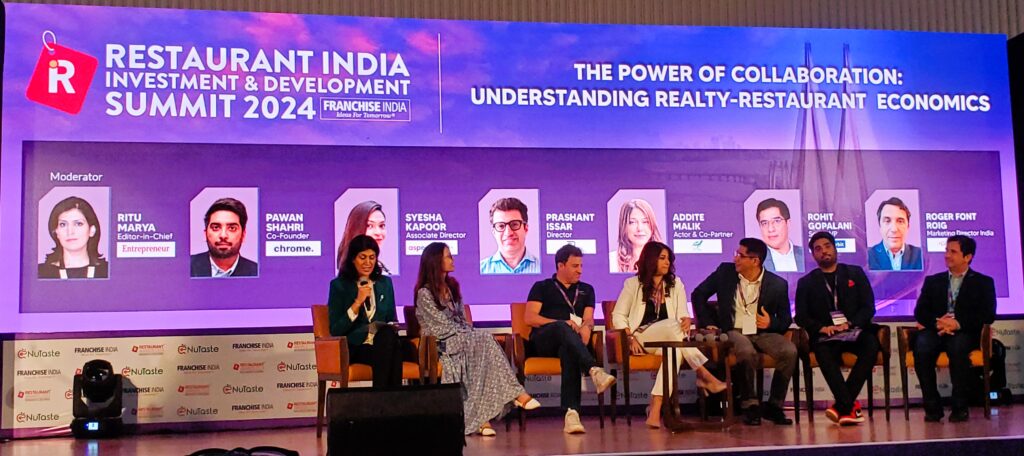
The panel discussion – The Power of Collaboration: Understanding Realty-Restaurant Economics, the session’s Lead & Moderator: Ritu Marya, Editor-in-Chief, Franchise India Group and the panelists Pawan Shahri, Co-Founder, Chrome Hospitality, Syesha Kapoor, Associate Director, Aspect Hospitality,
Prashant Issar, Director, Bellona Hospitality, Addite Malik, Actor & Co-Partner, Green Turtle Hospitality, Rohit Gopalani, Senior VP, Head Leasing, Marketing, Inorbit Malls (India) Pvt. Ltd., & Roger Font Roig, Marketing Director India, Lactalis discussed:
• Personalization, customer service, and proximity: How to do More with Less
• Space: Addressing all customer needs in limited space
• Rent or Rev Share: What works best for a restaurant organization ?
• Beyond Mumbai : Goa, Pune, Nagpur and beyond
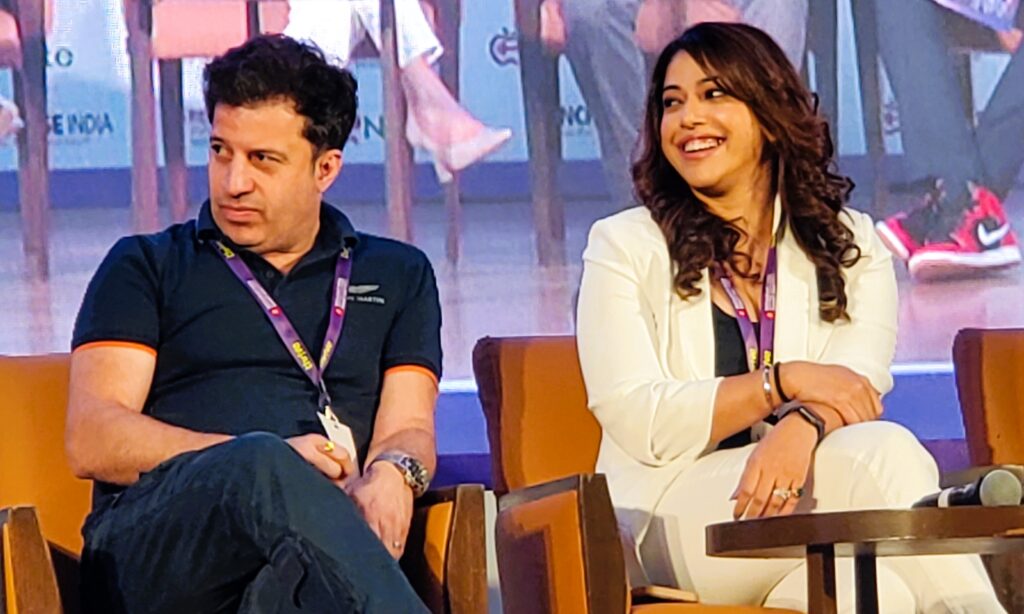
Prashant Issar, Director, Bellona Hospitality reflected on covid19 and said, the epidemic has taught us to be economical, and is now the primary priority. The restaurant business was the most hit by the shutdown. There was a shortage of manpower, and working capital had been drained by paying salaries and attempting to stay afloat during lockdown.
On restaurant layout/plan, Prashant emphasized, regardless of the location, or size of your restaurant, the basic restaurant layout design includes a kitchen, a hostess stand, a dining area, and utility spaces such as restrooms, cleaning areas, and so on. While most restaurant owners focus on seating arrangements in the dining room or bar, there are several more things to consider in other parts of their establishment. Perfecting every component of your restaurant layout design will help you provide the ideal dining experience for your visitors while also distinguishing yourself from the competition. A smart arrangement may substantially improve the eating experience, while a proper design can boost sales, as the business pays the rent. A well-planned restaurant layout may greatly improve the eating experience, resulting in increased revenue.
On pricing of the food items and providing value, Prashant highlighted the understanding of efficient pricing strategies allows restaurants to strike a long-term balance between profitability and a memorable customer experience. Understanding the art and science of pricing allows you to ensure your bottom line remains sustainable while your food excites and entices people to return and help ensure success in this highly competitive field, ensuring profitable margins.

Prashant Issar, Director of Bellona Hospitality, on restaurants may attract consumers, differentiate from competition, and protect themselves from future economic shocks by providing distinctive and memorable dining experiences. But restaurants are looking towards immersive experiential design as a viable answer, since it strives to create unique and memorable dining experiences that make a lasting impression on customers.
Bellona Hospitality is committed to providing unique, immersive, and indulgent experiences for their guests. By focusing on creating elegant and captivating designs, providing rich and diverse taste experiences, and embracing the philosophy of constant innovation, Bellona Hospitality aims to satisfy the evolving needs and desires of their discerning customers.
In the restaurant sector, the relationship between a restaurant owner and their landlord is typically symbiotic, with mutual benefits and collaboration. Prashant understands the significance of this relationship and wants to keep a pleasant and productive relationship with her landlord. A symbiotic connection contributes to each establishment’s overall profitability and longevity, as well as guest happiness.
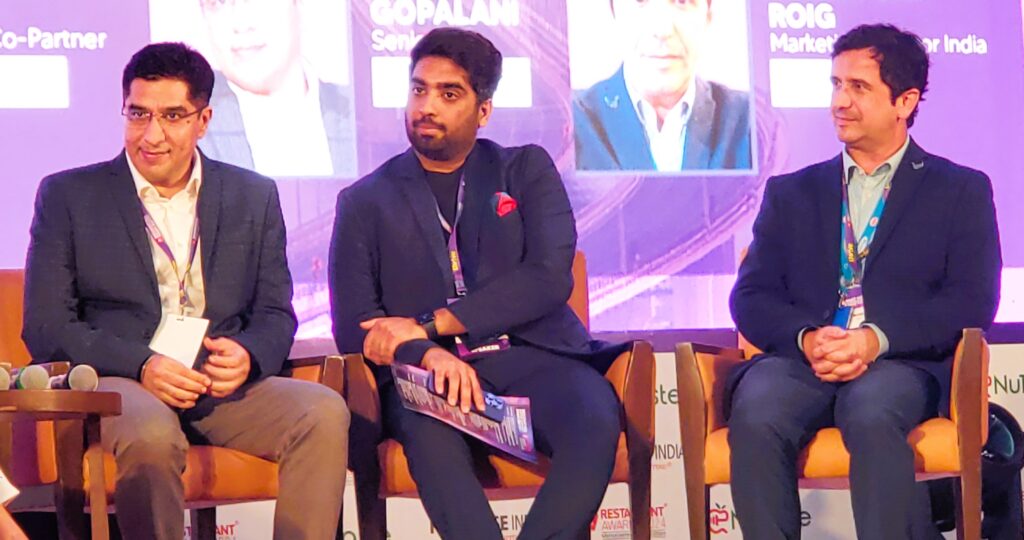
In the highly competitive and often challenging hospitality industry, creative solutions and strategic partnerships can be crucial for growth and success. As the Co-Founder of Chrome Hospitality, Pawan Shahri has been quick to recognize and embrace the potential benefits of collaborating with developers in the space. By investing in the capital expenditures (capex) of Chrome Hospitality’s restaurants, these developers not only contribute to the success of the restaurant but also help establish a mutually beneficial relationship.
As India’s tourism and hospitality industry continues to thrive, Pawan is seizing the opportunity to expand and diversify Chrome’s presence in the country’s most exciting and dynamic regions. With a focus on Pune, Mumbai, and Goa, Shahri is seeking to create a collection of unique boutique hotels and restaurants that embody the culture and beauty of each destination. By offering a personalized and immersive experience, Shahri aims to set Chrome Hospitality apart as a leader in India’s rapidly growing hospitality industry.
To cater to the evolving demands of contemporary diners, Pawan Shahri and Chrome Hospitality place a strong emphasis on balancing elegant and innovative design with the personalized and immersive experience that their guests crave. Through their duo and multicuisine restaurant formats, they aim to provide a diverse and flexible culinary experience that resonates with diverse tastes and preferences. This dual focus on both form and function creates an unforgettable dining experience that differentiates Chrome Hospitality from its competitors.
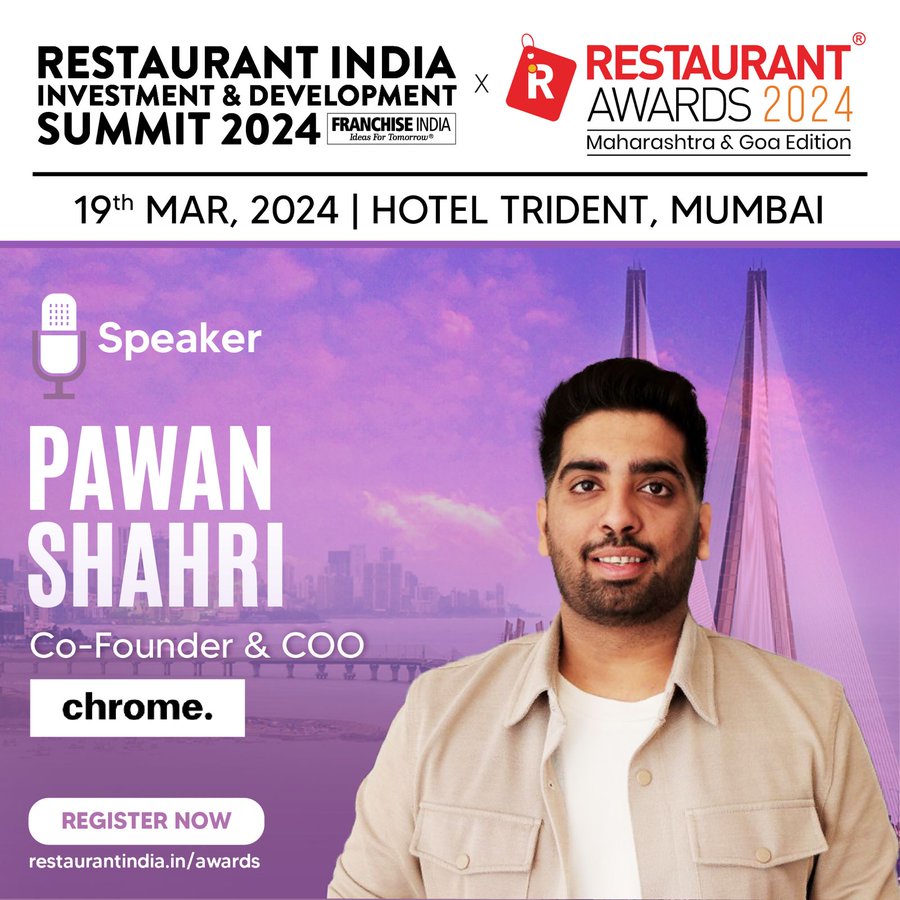
Excellent design is a cornerstone of Chrome Hospitality’s boutique hotels. The focus on aesthetic harmony, combined with a deep understanding of local culture, enables the hotels to offer a unique blend of style and comfort that resonates with guests. By incorporating local materials and design elements into the architecture and decor, while also maintaining a sophisticated and contemporary feel, Chrome Hospitality creates a sense of place that is both familiar and inspiring. Each hotel is a celebration of its surroundings, offering guests a luxurious escape that is as much about the environment as it is about the experience.
Cost optimization is a fundamental component of a successful hospitality business, and Pawan Shahri and Chrome Hospitality recognize the potential advantages of centralizing their kitchen operations. By consolidating their food preparation in larger, centralized kitchens, they can streamline their operations, minimize waste, and reduce costs while still delivering the same high-quality, personalized dining experiences that their guests have come to expect. This strategic move not only enhances the efficiency and profitability of their business but also allows them to dedicate more resources to other important areas, such as design, ambiance, and service.
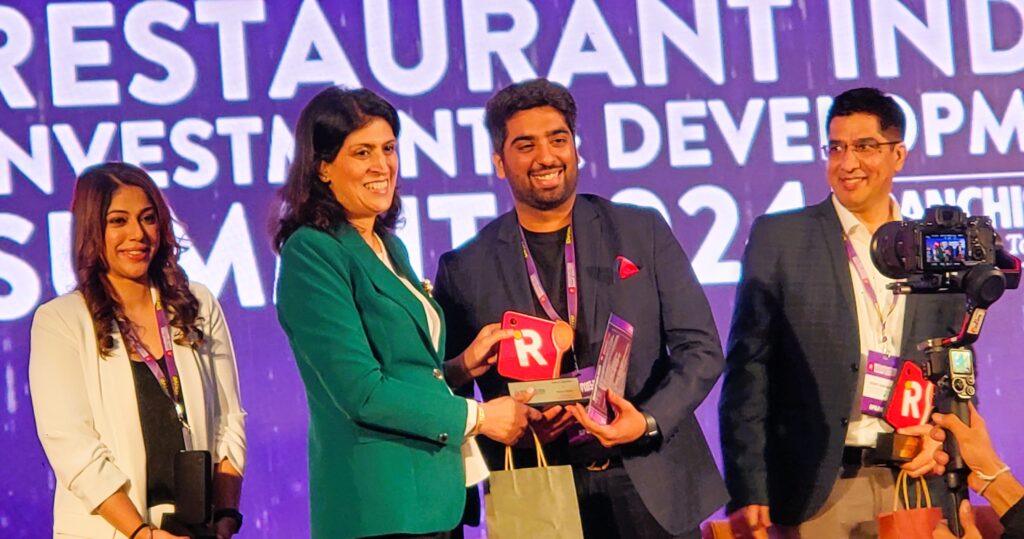
Pawan Shahri, as a visionary leader in the hospitality industry, recognizes the potential of tourist locations with affluent clientele and burgeoning wedding markets as ideal locations for his boutique hotels. These destinations offer a unique combination of picturesque settings, vibrant cultures, and high spending potential, making them ideal locations for luxury boutique hotels that cater to the needs of discerning travelers, honeymooners, and wedding guests. By carefully selecting these locations and tailoring the design, amenities, and services of his boutique hotels, Shahri aims to establish Chrome Hospitality as the premier destination for luxury, romance, and relaxation in India.
With its focus on boutique luxury and unique guest experiences, Kaya Boutique Hotel is poised to be a profitable venture for Chrome Hospitality. By limiting the number of keys to less than 25, the hotel can maintain its intimate and personalized atmosphere while ensuring that it doesn’t become overburdened with maintenance and operational costs. Additionally, by targeting an occupancy rate of 55-60%, Kaya Boutique Hotel can maximize its revenue while still providing guests with a private, exclusive experience. This strategic balance ensures that the hotel remains both profitable and appealing, setting it up for long-term success in the increasingly competitive hospitality market.
The spiritual and cultural significance of places like Haridwar and Rishikesh makes them ideal locations for Chrome Hospitality to target religious tourism. These destinations are renowned for their temples, ashrams, and pilgrimage sites, drawing millions of visitors each year. By establishing boutique hotels in these areas, Chrome Hospitality can cater to a wider range of guests, including those seeking a mix of spiritual and luxurious experiences. Additionally, the strong community of international travelers visiting these areas for yoga, meditation, and alternative health practices presents a unique opportunity to offer wellness-oriented amenities and services, further diversifying Chrome Hospitality’s appeal.

Syesha Kapoor, Associate Director of Aspect Hospitality, has a wealth of insights into the preferences and trends that are shaping the culinary landscape of her establishments. With a finger on the pulse of the market, Kapoor prioritizes the aspects when conceptualizing cuisine for Aspect Hospitality restaurants with regional specialties. Drawing inspiration from the distinct flavors and ingredients of each location, Aspect Hospitality offers a unique culinary experience that celebrates local culture and heritage.
Indeed, Kapoor has tapped into a range of international flavors to diversify Aspect Hospitality’s offerings, creating a world of taste adventures for their diners. In addition to their Pan-Asian and Japanese restaurants, Aspect Hospitality also boasts vibrant flavors of the Mediterranean, and Greek restaurant is planned.

India’s growing affluence and exposure to global cuisine, particularly among the upper middle class and affluent, has created a ripe market for Aspect Hospitality’s diverse dining offerings. This cosmopolitan audience, with their global outlook and appetite for new experiences, has made Bombay a hub of culinary exploration. Aspect Hospitality has tapped into this trend by offering a multitude of authentic, high-quality dining options, providing a welcome alternative to traditional Indian cuisine for those seeking variety and novelty. Indeed, Aspect Hospitality understands that the key to success in the hospitality industry lies in a clear and unwavering brand identity. By staying true to their core values of authenticity, quality, and variety, they have carved out a unique niche in the market that resonates with their target audience. This consistent and focused approach has allowed them to build a loyal customer base and establish themselves as a trusted name in the industry.

Addite Malik, Actor & Co-Partner, Green Turtle Hospitality’s core purpose of building restaurants are that they provide comfortable dining experiences. Each restaurant is a refuge where customers may savour a range of culinary delicacies, please their different taste senses, and, most importantly, find comfort outside of their own homes.
Aditi’s success mantra is simple,: “Follow your passions relentlessly.”
As co-partner of Green Turtle Hospitality, Addite Malik brings her love for the mountains and scenic views to her hospitality projects. Malik understands the allure of hill stations, particularly in the Himalayan region, and has identified Dehradun as a prime location for Green Turtle’s expansion. The city’s picturesque landscapes, pleasant climate, and growing popularity among tourists make it an ideal location for a boutique hotel or resort that offers a tranquil escape from city life. Malik is passionate about creating spaces that allow guests to reconnect with nature and rejuvenate their spirits, all while enjoying modern amenities and warm hospitality.

As the Head of Leasing and Marketing at Inorbit Malls, Rohit Gopalani is a pioneer in bringing unique and exciting dining experiences to the Indian retail landscape. Gopalani recognizes that the food and beverage industry is constantly evolving, and that today’s consumers are seeking diverse, innovative, and, most importantly, Instagram-worthy dining experiences. To cater to this demand, Gopalani has been instrumental in introducing new restaurant concepts and cuisines that break away from traditional fast food chains and offer a more sophisticated and curated dining experience.
Rohit Gopalani understands that rent is a significant expense for any restaurant operating within a mall environment. To help reduce the financial burden on new and emerging restaurants, Gopalani has been exploring various revenue-sharing models that allow restaurants to pay a lower upfront rent and then share a percentage of their profits with the mall. This not only helps new restaurants manage their cash flow better, but also incentivizes them to innovate and deliver high-quality services to customers, resulting in increased footfall and overall success for the mall as well.
Entertainment dining has emerged as a powerful trend in the Indian food and beverage industry, and Rohit Gopalani has been instrumental in bringing this concept to Inorbit Malls. Entertainment dining combines the best of both worlds – a quality culinary experience and engaging entertainment – offering diners a memorable and immersive experience. From themed restaurants that transport guests to different eras and cultures to interactive dining concepts like live cooking shows and escape room experiences, Gopalani is continually pushing the boundaries of traditional dining to provide a more exciting and engaging experience for his customers.
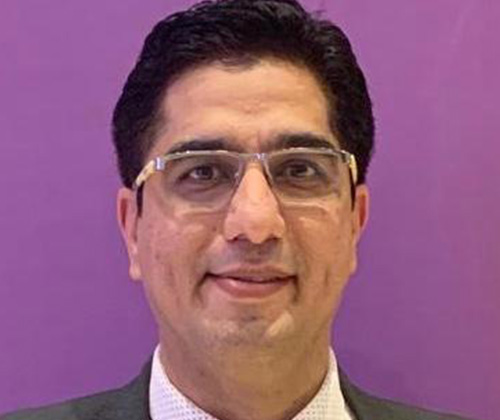
Rohit Gopalani recognizes that the traditional anchor tenant model in retail is changing rapidly, with online shopping and the rise of smaller, more specialized retailers disrupting the industry. To stay competitive, Gopalani believes that food and beverage is an essential component for success in modern retail. By dedicating more space to F&B outlets, malls can offer visitors a comprehensive and immersive shopping experience that goes beyond mere shopping. This trend is expected to continue in the future, as consumers seek out engaging, social experiences that blend food, entertainment, and retail in a single destination.
Rohit Gopalani sees immense potential in tier 2 and 3 cities, where the demand for quality dining and entertainment options is on the rise. These cities are not only experiencing rapid economic growth and increased disposable income, but they also lack the competition found in major metropolitan areas like Mumbai and Delhi. This combination presents a unique opportunity for Inorbit Malls to establish themselves as the go-to destination for retail and leisure in smaller cities.
Another main important observation I gathered, the changing consumer behaviour, as the increasing urban traffic and time constraints have led to a shift in people’s preferences for dining and entertainment options. Instead of traveling far for a dining experience, people are more likely to opt for places that are closer to home or work, as they offer more convenience and less hassle. This has given rise to the development of new catchment areas like Nesco, which are strategically located near residential and commercial hubs. The proximity of these areas to homes and offices leads to more frequent visits, while distant locations tend to attract visitors on special occasions or weekend outings.

Roger Font Roig, Marketing Director for Lactalis India, truly believes that their products offer an experience beyond mere food. Roig emphasizes the unique sensory journey that their products provide, ranging from the pleasing texture and aroma to the carefully crafted flavor profiles that are inspired by traditional French recipes. By positioning their products as an immersive experience rather than just another dairy item, Roig hopes to create a deeper emotional connection with consumers, positioning Lactalis as not just a supplier of quality dairy products but a curator of memorable experiences.
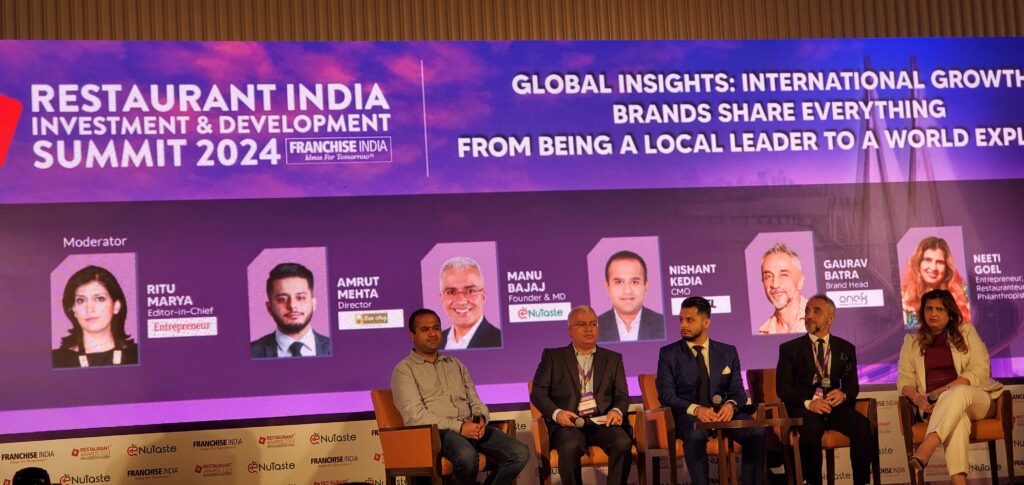
The panel discussion – Brands share everything from being a local leader to a World Explorer, the session was lead & Moderated by Ritu Marya, Editor-in-Chief, Franchise India Group, and the panelists were: Karan Kapur, ED, K Hospitality Corp, Amrut Mehta, Director, Little Italy Group, Manu Bajaj, Founder & MD, NuTaste, Nishant Kedia, CMO, Rebel Foods, Gaurav Batra, Brand Head, Neuma & One8Commune, Neeti Goyal, Restaurateur, Philanthropist.
The discussion was on:
•Building brands for the World: What to learn & unlearn?
•Thinking Global: The opportunity markets outside India
•How to innovate and adapt to foreign markets
•Technology and Automation: Elevating customer/store experience while keeping costs in check
Neeti Goyal, the restaurateur, offered a wealth of insights into the art of franchising and creating a successful restaurant brand:
Goyal prefered to focus on quick-service restaurants (QSRs), as they are more conducive to standardization and efficient operations, making them easier to replicate across multiple locations. Fine dining, on the other hand, requires a high level of customization and personalization that can be more challenging to maintain in a franchise model.
Neeti Goyal emphasizes that servicing a restaurant, whether it’s a QSR or fine dining, requires a unique set of skills and attention to detail. While QSRs might focus on speed, efficiency, and affordability, luxury restaurants require an exceptional level of customer service and attention to detail to create an exclusive, high-end experience for guests. Goyal believes that this level of service requires specialized training, experience, and a deep understanding of luxury hospitality to execute flawlessly. This attention to detail extends not just to the food but also to the decor, ambiance, and overall customer experience.
In the case of a high-end restaurant, Neeti Goyal stresses that luxury hospitality is all about creating a unique and memorable experience for guests. This includes, but is not limited to:
Personalized Service: High-end restaurants must provide personalized service, catering to guests’ individual tastes and preferences. This can range from remembering regular customers’ favorite dishes to anticipating and fulfilling special requests.
Exclusive Amenities: Luxury restaurants must offer exclusive amenities that create an indulgent and sophisticated atmosphere. This could include premium wine lists, live entertainment, exclusive seating areas, and private dining rooms.
Neeti Goyal emphasizes that defining a restaurant’s identity is critical to its success. This includes understanding the restaurant’s target customer base, the type of cuisine offered, and the overall ambiance and experience that guests can expect. By creating a clear and consistent identity, the restaurant can appeal to its target audience and differentiate itself from competitors. Goyal suggests considering factors such as:
Cuisine: Is the restaurant focusing on a specific cuisine or regional specialty?
Atmosphere: Is the restaurant aiming for a formal or casual atmosphere? Will it cater to families, businesspeople, or a more exclusive clientele?
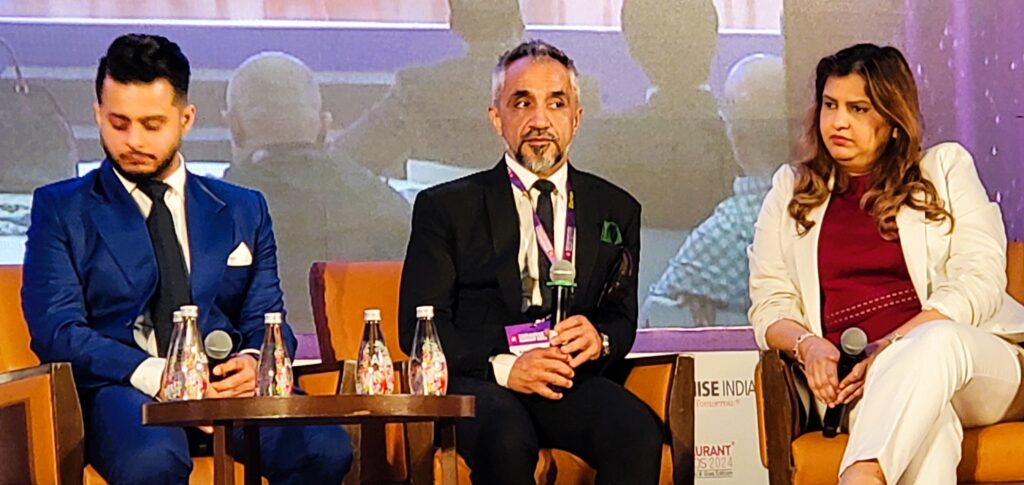
Neeti Goyal understands the importance of thorough market research when determining the ideal cuisine and location for a new restaurant. Goyal suggests the following steps when researching customer preferences and micro locations:
Taste Testing: Conducting taste tests and surveys with potential customers can provide valuable insights into their preferences for different cuisines, spices, and cooking styles.
Demographic Analysis: Examining the demographics of a potential location, including age, income, and cultural background, can help identify the types of customers the restaurant might attract.
For Neeti Goyal, the location of a fine dining establishment is crucial, as it can make or break the restaurant’s success. She believes that a well-chosen location can provide significant competitive advantages, such as proximity to affluent neighborhoods, major business districts, and other desirable areas. However, choosing a high-rent location carries significant risks, as a miscalculated decision can lead to unsustainable costs and revenue shortfalls. To mitigate this risk, Goyal advises restauranteurs to consider clustering their locations, which can help maintain consistent quality, while also providing economies of scale in terms of sourcing, marketing, and management.
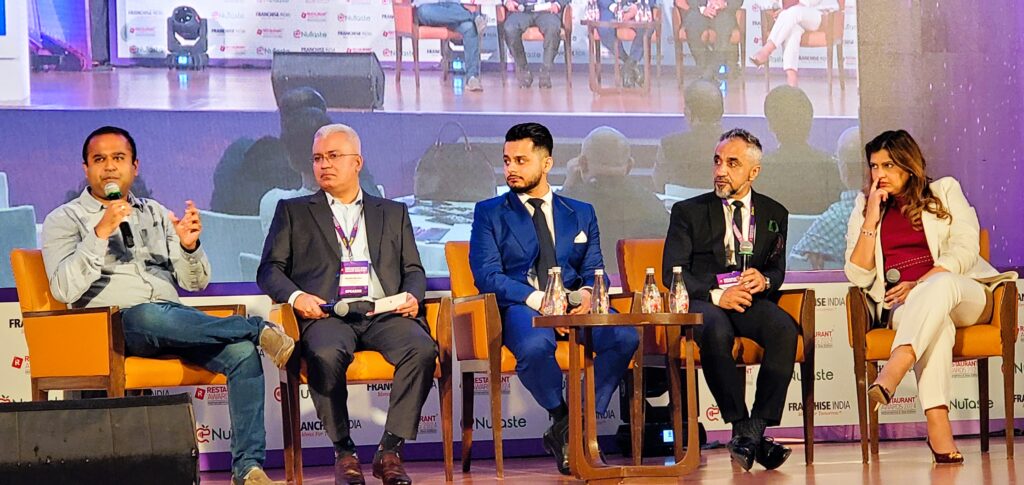
As Director of Little Italy Group, Amrut Mehta emphasizes the importance of ROI-driven decisions in the restaurant business. According to Mehta, ROI is a crucial metric that can help restauranteurs make informed decisions about everything from menu planning and staffing to marketing and expansion. By focusing on profitability and return on investment, restauranteurs can ensure that their businesses remain financially healthy and sustainable, even during challenging economic times. Mehta believes that by aligning strategic decisions with ROI targets, restauranteurs can effectively allocate resources, maximize revenue, and drive long-term growth and success.
Amrut Mehta notes that the upscale casual/premium segment of the restaurant industry presents both significant opportunities and challenges for ROI-driven restauranteurs. On the one hand, this segment offers higher average checks and a more sophisticated clientele, resulting in greater revenue potential. On the other hand, the higher costs associated with upscale dining, such as premium ingredients and sophisticated ambiance, can also erode margins if not managed carefully. To succeed in this segment, Mehta advocates for a balanced approach that emphasizes quality and customer experience while also maintaining strict cost control and pricing discipline.
The UAE, and particularly Dubai, has become a major destination for Jain and vegetarian Indian cuisine due to the growing demand from affluent Indian expats living in the region. This presents a lucrative opportunity for restauranteurs like Amrut Mehta, who are able to cater to this niche market with high-quality, authentic Indian vegetarian and Jain cuisine. By tapping into this demand, Mehta has been able to expand his Little Italy Group in the UAE market, offering a unique dining experience that combines traditional Indian flavors with contemporary Italian influences.
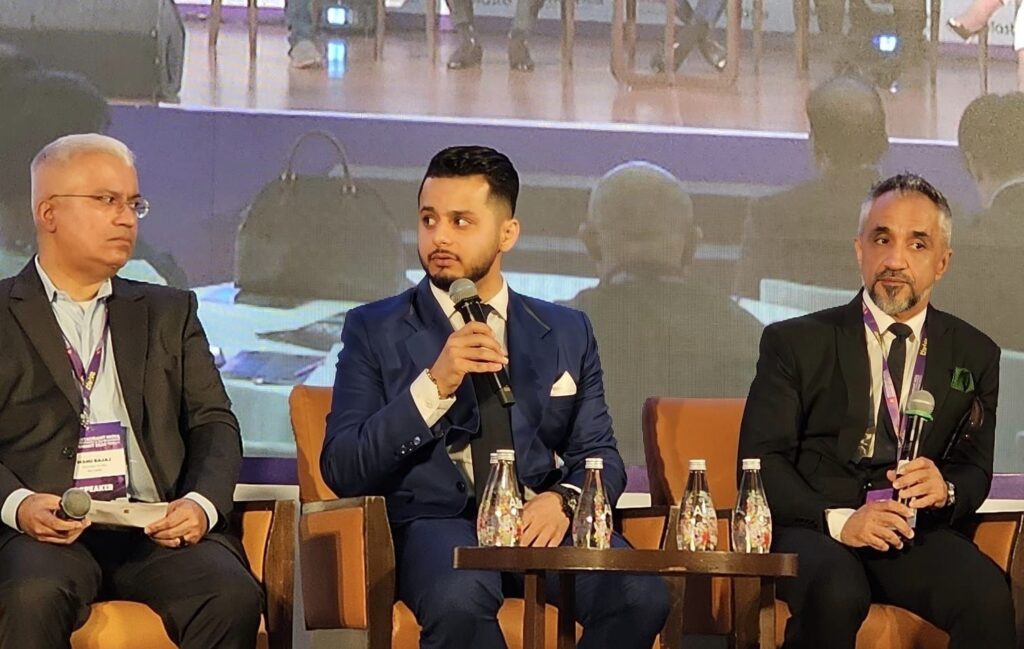
Amrut Mehta understands that innovation and experimentation are essential components of success in the restaurant industry, particularly in the highly competitive upscale casual/premium segment. To stay relevant and exciting, Mehta believes that restaurateurs must continuously innovate and introduce new tastes and flavors to their menus, while also remaining true to their brand identity and culinary philosophy. This could include experimenting with new ingredients, offering seasonal specials, or incorporating modern cooking techniques. Mehta also emphasizes the importance of catering to changing customer preferences, such as incorporating more plant-based options or offering a more health-conscious menu.
Amrut Mehta places great emphasis on being customer-centric and understanding the evolving demands of the target market. To do this, Mehta recommends the following steps:
Guest Feedback: Regularly soliciting feedback from guests through surveys, reviews, and social media engagement can provide valuable insights into customer preferences and satisfaction.
Local Market Research: Conducting market research in specific cities and neighborhoods can provide a deeper understanding of local preferences, trends, and competition.
Amrut Mehta’s insights on supply chain robustness and scaling in the restaurant business:
- Sourcing Consistency: Mehta emphasizes the importance of establishing strong relationships with suppliers and sourcing ingredients consistently to maintain quality and reduce costs. This ensures that the menu items and flavors remain the same across all locations, even as the business scales.
- Standardization and Customization: Mehta believes that standardization of core menu items is important for efficiency, while allowing for some degree of customization at the local level helps to cater to different regional preferences.
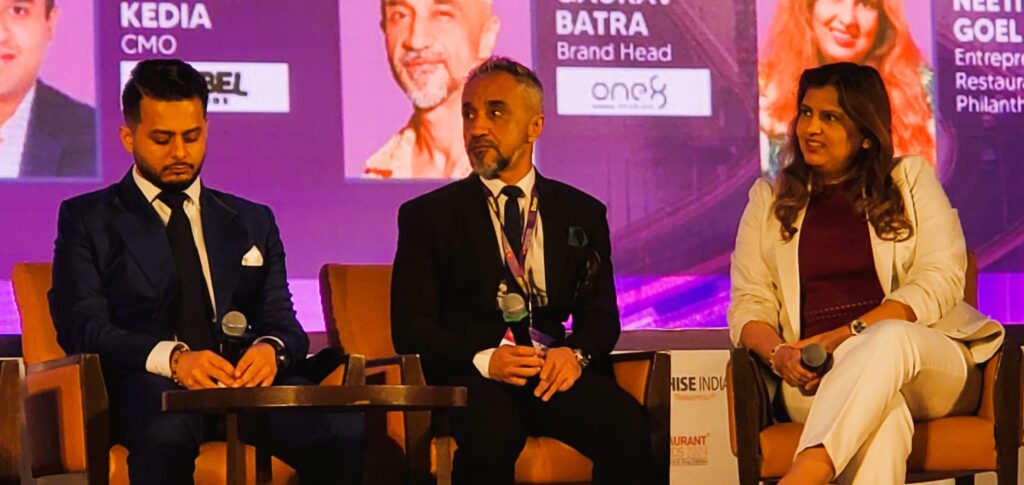
The 8 Commune restaurant, with its celebrity-oriented brand, is an innovative concept that has struck a chord with the Indian consumer, both within the country and globally. With its celebrity-endorsed menu, 8 Commune offers a diverse range of dishes, appealing to a wide variety of palates and cuisines. And their Dubai location has been a resounding success, catering to the UAE’s growing appetite for Indian cuisine. This unique combination of celebrity appeal, culinary diversity, and global reach is proving to be a winning formula for 8 Commune.
The popularity of 8 Commune’s celebrity-oriented brand can be attributed to several factors:
Celebrity Engagement: The restaurant’s association with Bollywood celebrities adds a glamorous touch to the dining experience, allowing patrons to feel a sense of connection with their favorite stars.
Culinary Variety: The wide-ranging menu, with options ranging from traditional Indian dishes to international cuisines, ensures that there’s something for everyone at 8 Commune.

Manu Bajaj, Founder and MD of NuTaste, is passionate about elevating the perception of Indian cuisine on a global scale. Bajaj believes that Indian food is often misunderstood and underappreciated, with many people associating it with greasy, heavy dishes. He is determined to break this stereotype by introducing Indian cuisine in a modern, sophisticated, and innovative way that showcases the diverse regional flavors and techniques of Indian cooking. By standardizing the menu across his restaurants, Bajaj aims to provide a consistent and elevated Indian dining experience that educates and delights customers.
Indian food has enjoyed immense popularity in the UK for decades, thanks to the large population of Indian immigrants who brought their cuisine with them. Even today, Indian food remains one of the most popular cuisines in the UK, with many Brits enjoying a “curry” (as Indian food is affectionately known) on a regular basis. From classic dishes like Chicken Tikka Masala to regional specialties like Biryani, Indian food has become a beloved staple of the British culinary scene.
Bajaj has adopted a vertically integrated approach to his supply chain, with Nutaste sourcing directly from farmers and artisanal producers to ensure the highest quality ingredients. This level of control over the supply chain also allows for greater customization and innovation in the menu. Bajaj has also introduced value-added services such as in-house baking, catering, and home delivery, which help to increase revenue and customer engagement.
Manu Bajaj’s approach to supply chain robustness and scaling with Nutaste:
Local Sourcing: Bajaj has prioritized sourcing ingredients from local farmers and artisans, not only to ensure quality but also to support the local economy. This strategy helps to build a more resilient and flexible supply chain that can adapt to market fluctuations and regional preferences.
Bajaj has leveraged Nutaste’s focus on local sourcing to overcome the seasonality of high-end ingredients like truffles and Alphonso mangoes. By partnering with specialty suppliers and even farming truffles in-house, Nutaste is able to offer these delicacies year-round, providing customers with a unique and premium dining experience that is not dependent on seasonal fluctuations. This level of commitment to ingredient quality and availability has helped Nutaste to stand out in the highly competitive upscale casual/premium segment.
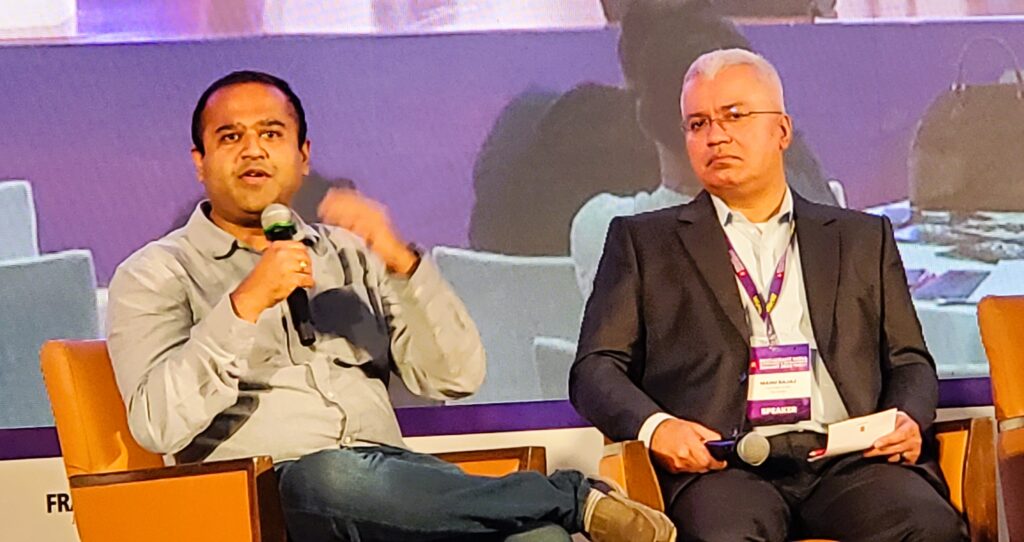
Manu Bajaj recognizes that data-driven decision-making and thorough market research are essential to success in the restaurant industry. Bajaj believes that understanding the market, identifying competitors, and analyzing trends can provide invaluable insights for strategic planning. Some of the key research areas he recommends include:
Customer Demographics: Understanding the demographic profile of potential customers can help to tailor the menu, ambiance, and marketing to appeal to a specific target audience.
Bajaj believes that once a restaurant establishes a solid customer base and positive reputation, scalability becomes a more realistic goal. He emphasizes the importance of having a strong core team in place that can help to manage and maintain the quality and consistency of the brand across multiple locations. According to Bajaj, a typical core team for a restaurant group might include:
Operations Manager: This person oversees day-to-day operations, ensuring that all locations are following the same procedures and standards.
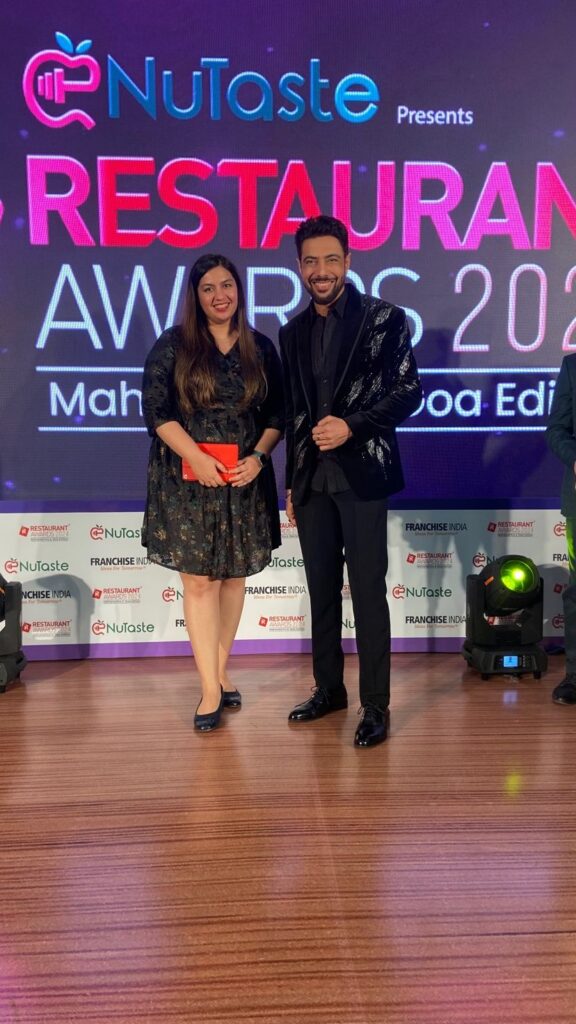
Bhavana Bhatia – Global Emcee was the Emcee of the Resteraunt India Investment & Development Summit, Mumbai Edition and the iconic Resteraunt Awards 2024 Maharashtra and Goa Edition.

